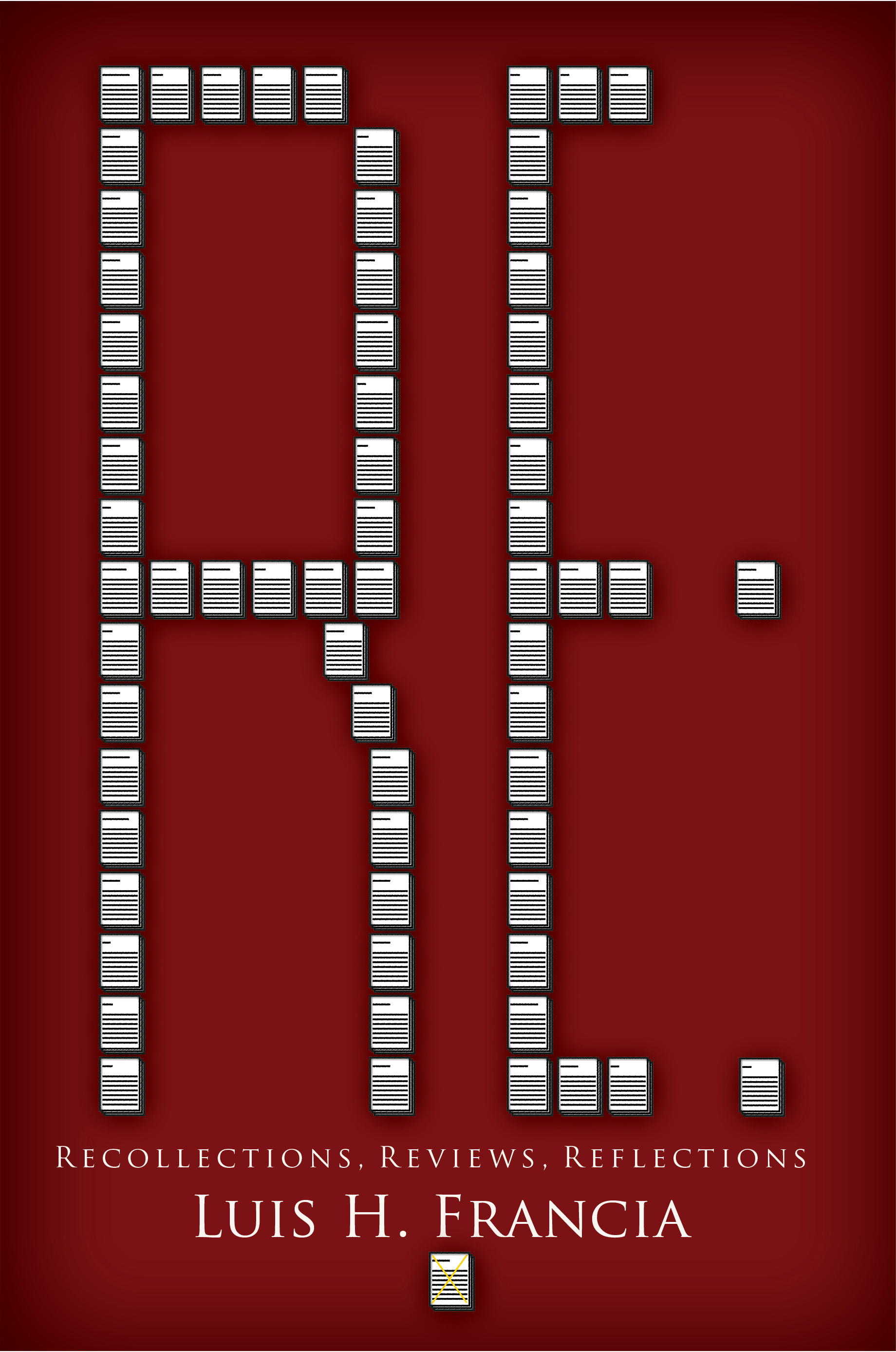
RE: Recollections, Reviews, Reflections
Roaming through Luis H. Francia’s RE is both a surprising and sentimental journey. You recollect what was forgotten, reflect on what you knew and didn’t know. This pleasurable read that traverses a nation’s history and what it means to be Filipino and Filipino-American is patiently observed, meticulously recorded, and finely tuned. A fine and unusual collection, with time on its side. – Xu Xi, City University of Hong Kong
In this thoughtful and elegantly written book, Luis H. Francia “remembers, forgets, and reclaims” his Filipino-ness. In the 1970s, this flower child left for the lights of Broadway and the highly caffeinated and magical lifestyle of La Boheme. But soon enough he realized that he could never leave home, because the pesky Pinoy asserted itself at every moment, recurring like a bittersweet dream. The longer he stayed away from home, the keener became his vision of the islands and the institutions that reared him—the church that continued to treat its members as children, the feudalistic factory that continued to disgorge Marcoses in all shapes and sizes, and Pinoy entertainers who could belt out a moving, flag-waving national anthem followed right after by an equally soulful rendition of “God Bless America.” He finally understood that, try as hard as he might, he could never leave home because “in the diaspora” [and may I add in the home country], perhaps “the only true home for Filipino writers lies in the words we build, repositories of who we are and what we hold dear, that we bring wherever we may be, to render the space we inhabit a place at once sacred and mundane.” Praise be to this Pinoy prodigal poet who made progress by sticking his neck out. – Nicanor G. tiongson, University of the Philippines Diliman
Luis H. Francia knows New York and America better than many of the native-born, but he never loses his moorings, his critical awareness of what it means to be Filipino-American. But these essays are about far more than racial politics, as they chronicle the travails of that most blessed and in other ways most cursed of citizens—the artist, particularly the artist abroad, for whom alienation acts as a lens that magnifies and reshapes every little thing that crosses the eye. The most arresting and delightful reads are his portraits of the expatriate masters who preceded him in America—most notably José Garcia Villa, lover of martinis and hater of cheese. Despite the plaints, Francia has been clearly and distinctly privileged to be where he has been and to see what he has seen, and he shares that privilege with us in this well-wrought collection. – Jose Dalisay, University of the Philippines Diliman
About the Author
Born and raised in Manila, Luis H. Francia is a poet and a nonfiction writer. His nonfiction works include the memoir Eye of the Fish: A Personal Archipelago, winner of both the 2002 PEN Open Book Award and the 2002 Asian American Writers award, and Memories of Overdevelopment: Reviews and Essays of Two Decades. His A History of the Philippines: From Indios Bravos to Filipinos was published in 2010, with a revised edition released in 2014.
His several volumes of poetry include Tattered Boat, The Beauty of Ghosts, and Museum of Absences. His poems have been translated into Spanish, French, German, and Filipino.
He is the editor of Brown River, White Ocean: A Twentieth Century Anthology of Philippine Literature in English, and co-editor of Vestiges of War: The Philippine-American War and the Aftermath of an Imperial Dream, 1899–1999, as well as the literary anthology Flippin’: Filipinos on America.
He writes a column, The Artist Abroad, for the Philippine Daily Inquirer, the country’s largest English-language newspaper. He is on the faculty of Asian American Studies at New York University and Hunter College. He teaches creative writing at the City University of Hong Kong. He and his wife live in the borough of Queens in New York City.
